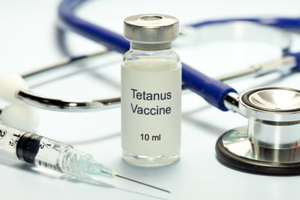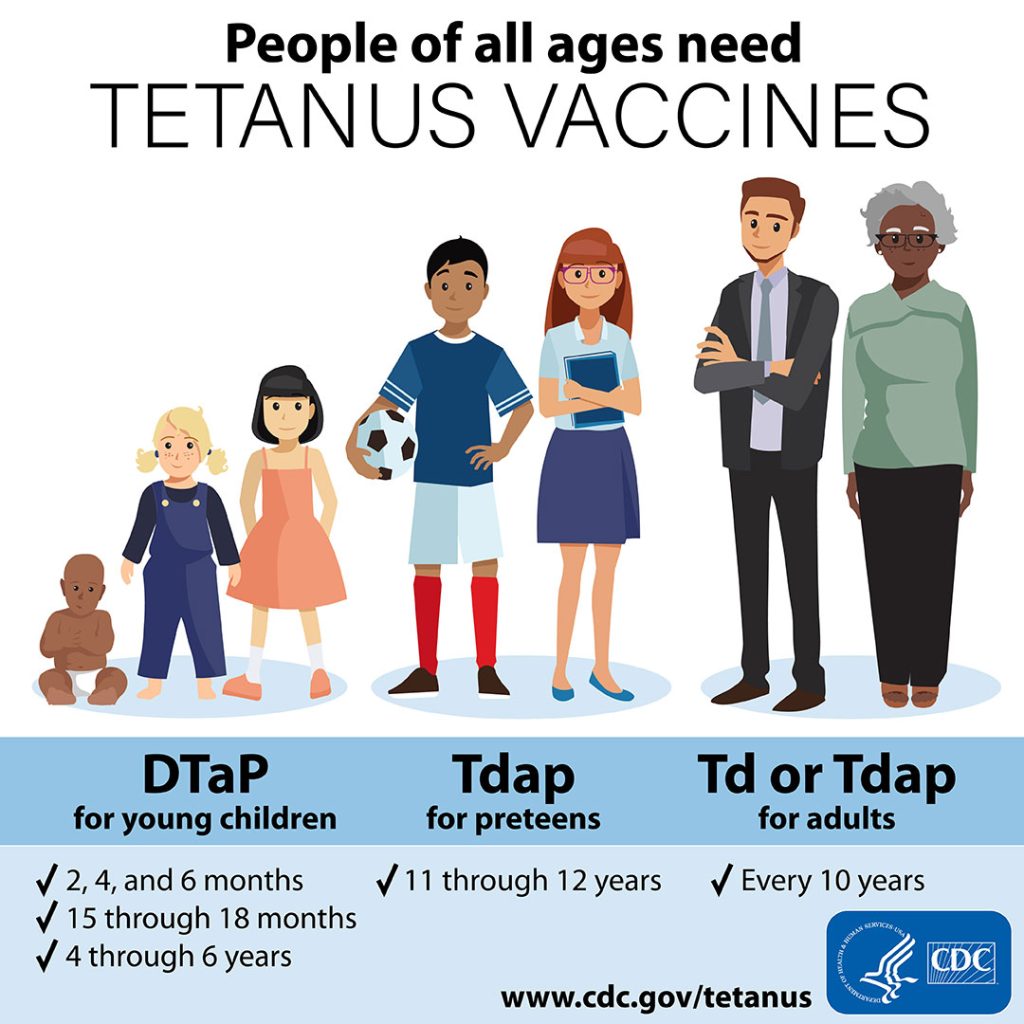 Because established tetanus is often fatal, even with expert treatment, prevention is of paramount importance. The two major means of preventing tetanus are immunization and wound care. All children need to get a tetanus shot. If bacteria come in contact with a wound or opening in the skin, it can lead to a serious infection.
Because established tetanus is often fatal, even with expert treatment, prevention is of paramount importance. The two major means of preventing tetanus are immunization and wound care. All children need to get a tetanus shot. If bacteria come in contact with a wound or opening in the skin, it can lead to a serious infection.
When Should Children Get Their First Tetanus Shot?
Health officials recommend active immunization of infants and children with DTaP — diphtheria, tetanus, and pertussis (whooping cough) — vaccine at the ages of 2 months, 4 months, 6 months, 15 to 18 months, and again between the ages of 4 and 6. Children should next get a tetanus vaccine using the Tdap vaccine at age 11 or 12. Any adult who has not had a tetanus immunization within 10 years should get a single dose of Tdap. After Tdap, the Td vaccine is recommended every 10 years. There is evidence that tetanus immunization remains highly effective for much longer than 10 years. Tetanus can cause some serious symptoms that are completely preventable with a vaccination.
A Few Of The Symptoms Of Tetanus
Tetanus is a serious disease of the nervous system caused by a toxin-producing bacterium. The disease causes muscle contractions, particularly of your jaw and neck muscles. Tetanus is commonly known as lockjaw. Severe complications of tetanus can be life-threatening. There’s no cure for tetanus. Treatment focuses on managing symptoms and complications until the effects of the tetanus toxin resolve. Most children will develop symptoms within two weeks of exposure to the bacteria.
Symptoms are:
- Rapid heart rate and fever
- The tension of muscles around your lips, sometimes producing a persistent grin
- Painful spasms and rigidity in your neck, shoulder, and jaw muscles
- Difficulty swallowing and breathing
- Rigid abdominal muscles
How Is Tetanus Transmitted?
Tetanus is not a contagious illness. It occurs in individuals who have had a skin or deep tissue wound or puncture. After being exposed to tetanus, it may take from three to 21 days to develop any symptoms. In infants, symptoms may take from three days to two weeks to develop. If left untreated, tetanus can be life-threatening, so it is important to bring your child in right away if they develop any tetanus symptoms after having a wound.
Why Is It Important To Keep Up With Vaccinations?
Vaccines prevent the spread of infectious, dangerous, and life-threatening diseases. They save millions of lives per year and are well recognized as being one of the most successful public health interventions in the world. You must be keeping up with your child’s vaccine schedule so that they are fully protected against dangerous diseases.
Contact Us (859-525-8181) if you have any questions!
—
 About Pediatrics of Florence
About Pediatrics of Florence
We believe that children are more than just “little adults.” They have unique personalities, challenges, and life circumstances and we have made every effort to make our offices and care as “kid friendly” as possible. We have an aquatic theme in the waiting rooms (separated for sick and well children) as well as themed examination rooms. All of our physicians are Board Certified Pediatricians and members of the American Academy of Pediatrics and our nurse practitioners are all licensed Pediatric Nurse Practitioners and are available to see both well and sick children.

